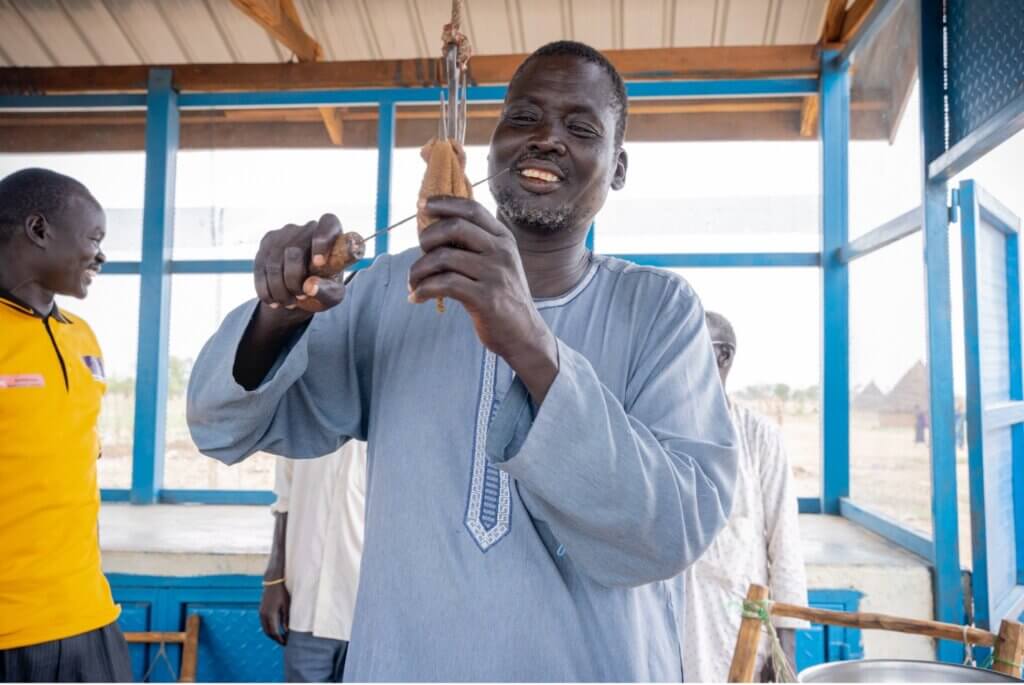
Kor Akoon is a resident of Malual Baai Payam in South Sudan. He is one of the participants of the ‘Advancing Self-Reliance Among Displacement-affected Communities’ (ASRD) project. ASRD, which is funded by the European Union (EU) and managed by the UNOPS Lives in Dignity Grant Facility, is implemented in partnership between Near East Foundation (NEF) and the Centre for Emergency and Development Support (CEDS). ASRD aims to reduce vulnerability and increase self-reliance among displacement-affected households and communities in Northern Bahr el Ghazal, Warrap, and the Ruweng Administrative Area of Unity State in South Sudan.
In Malual Baai, ASRD participants engage in various income-generating activities throughout the community’s open marketplace. Kor Akoon, a 63-year-old local butcher, expanded his business with a $100 grant provided under the project.
“I used to buy six goats, which I slaughtered and, in turn, sold to my clients at the meat shop. But now, I have increased the number to 12 goats.”
Access to financial and non-financial services has enabled Kor to double the number of animals he processes, increasing his daily income. The business training and cash have allowed Kor to grow his business, hire additional workers, and support the community’s needs. Despite the country’s inflation crisis, Kor has grown in his venture, so much so that he started a Sanduk (community savings association) to help others needing financial services.
“[The market here] has expanded so much because of the project; we have even founded our own market savings group. There are 30 of us in the Sanduk. Each person pays 6,600 South Sudanese Pounds per week. Once it’s collected, it will be given to five people, and it helps a lot.”
As part of the project’s technical capacity-building, participants received recordkeeping, business plan development, and financial management training. According to Kor, the financial management training has been very helpful and will enable his business to continue growing. Moreover, Kor reported that the Sanduk will continue supporting local businesses after the project ends.
A critical function of the ASRD project has been the establishment of the six community-based associations, known as Payam Level Associations, or PLAs. These PLAs are the primary vehicle for service delivery, providing livelihood training and funding to support small businesses and agricultural farms, enabling beneficiaries to apply what they have learned. The PLAs’ funding (30% grant and 70% loan) allows the associations to recover funding for re-lending. Additionally, under the ASRD project, the PLAs received financial support to invest in their own income-generating activity to further their sustainability as service providers in the communities.
Acknowledgement: This project has been made possible with funding from the European Union, managed by UNOPS and disbursed by the Lives in Dignity Grant Facility. The LiD Grant Facility aims to enable refugees and other displaced persons to become productive members of their host communities and participate in furthering their common resilience, socio-economic growth and development in South Sudan. The support of the Lives in Dignity Grant Facility is gratefully acknowledged.